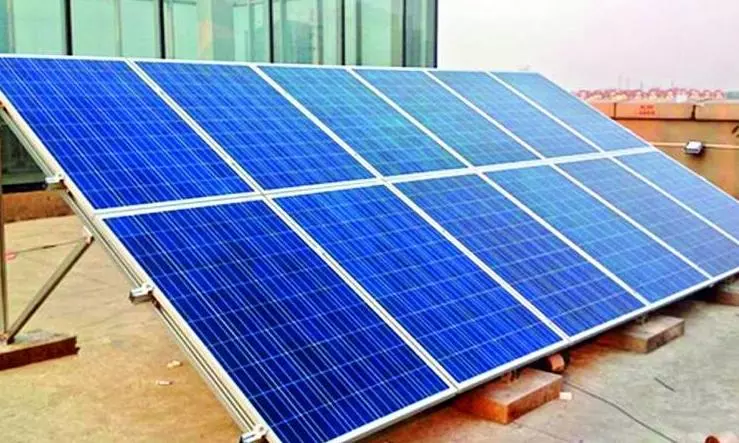Kurnool: Officials of Kurnool and Nandyal districts are educating farmers to use their barren lands for solar power generation, taking advantage of the PM Kusum Yojana. The scheme aims to provide energy and water security to farmers, boost their income, reduce use of diesel in agriculture, and control environmental pollution.
The central government launched the scheme in March 2019 with the goal of generating 10,000 megawatts of solar power across the country. Many farmers in states like Gujarat and Rajasthan are taking advantage of this opportunity.
The union government scaled up the scheme in January 2024. It has started supporting establishment of solar power projects on vacant non-agricultural lands in the state. It is providing financial assistance to landowners for starting the projects.
Farmers can set up decentralised ground or stilt-mounted, grid-connected solar (or other renewable energy) power plants on their land with a capacity of up to 2 MW. They can install these plants on their own or in partnership with others.
Farmers can install stand-alone solar agriculture pumps for irrigation, with the centre providing 30 per cent financial assistance for the solar pump. The government offers the same assistance for solarisation of grid-connected agriculture pumps through individual pump solarisation mode and feeder-level solarisation of the agricultural load.
In Kurnool district, officials have submitted proposals to generate 50 MW of solar power on about 250–350 acres of land. They are awaiting approval. However, officials are facing challenges in acquiring land from private farmers for power generation. This is because the land must be located within 5-km of a local sub-station, which has become a major hurdle.
Officials in Kurnool and Nandyal are thus planning to acquire D-patta and endowment lands, which are not very productive, for the project.
“If anyone comes forward to lease land at ₹31,000 per acre, we will take it. So far, the response from individual farmers, who are not actively farming, has been encouraging,” said M. Umapathy, superintending engineer (Operations), APSPDCL.

